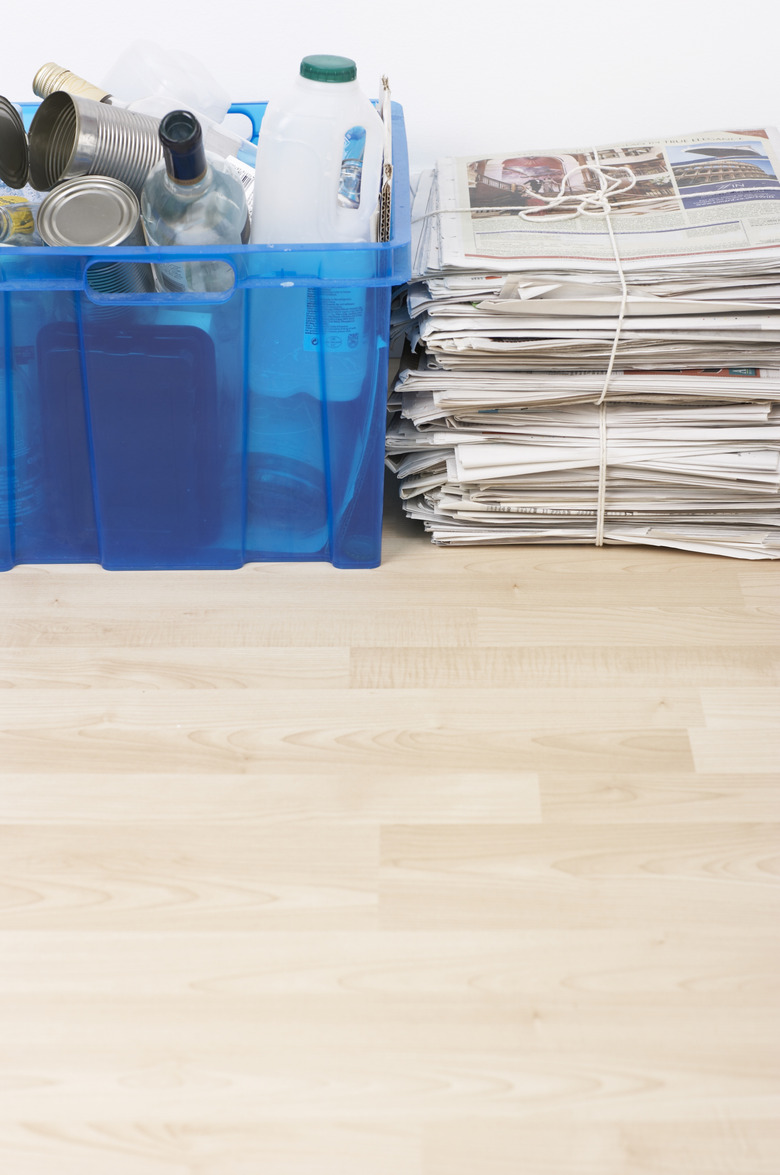Disadvantages Of Recycled Products
Opting for recycled products whenever possible can help save energy and natural resources. In most cases, products that use post-consumer materials are indistinguishable from other items, and a significant number of consumer brands include at least some recycled materials in their packaging. In a few cases, however, recycled products can have a downside, and you should consider them carefully when making your choices.
Environmental Impact
Environmental Impact
Some recycled products can have a negative impact on the environment. Reclaimed paper pulp often requires bleaching before reuse, and the concentrations of chlorine required can be a toxic hazard and a pollutant if not handled correctly. Many paper recyclers forgo bleaching their products, creating products with a natural brown color, or they use nonchlorine substances to brighten their paper products. Look for recycled paper products labeled "processed chlorine free" to be sure your recycled paper is as environmentally friendly as possible.
Outsourcing
Outsourcing
Electronic devices contain many valuable and rare compounds, so choosing devices that include post-consumer content seems like a good way to reduce pressure on natural resources. Unfortunately, the practice of recycling electronics often produces so many toxic byproducts that recyclers simply ship the electronic waste to other countries, taking advantage of less restrictive environmental regulations. This could mean that the recycled content inside your electronic device took multiple trips around the world, negating the energy and environmental benefit of recycling the materials in the first place.
Costs
Costs
In the majority of cases, using recycled materials is no more expensive than using raw materials, and in some cases, it can be cheaper. But there are some areas where opting for recycled products may come with a cost premium. Using reclaimed materials when remodeling or building a home is one way to reduce your impact on the environment, but boards made from recycled plastic and countertops formed from reclaimed glass may be substantially more expensive than other options. If you are trying to create a green living space on a budget, you may have to make some difficult choices about the materials you use.
Downcycling
Downcycling
Unlike aluminum, which manufacturers can recycle and recast a theoretically infinite number of times with no loss of quality, plastics are generally only good for one use. You cannot melt down a plastic beverage bottle and recast a new one, so you have to "downcycle" the plastic into a new form, such as fiberfill insulation. Once that insulation has served its purpose, the plastic fibers are generally unusable for any other purpose and simply enter the waste stream with other trash. Choosing a recycled plastic product may seem like a good way to help the environment, but in many cases you are simply delaying, not preventing, the eventual trip to the landfill.
References
- Plastic Pollution Coalition: Common Misconceptions
- National Resources Defense Council: Avoiding Chlorine in the Paper Bleaching Process
- Earth911: Single-Use Batteries
- CBS News: U.N. Warns of E-Waste in Developing World
- Environmental Protection Agency: Environmental Factoids
- American Plastic Lumber: FAQ's
Cite This Article
MLA
Kazmeyer, Milton. "Disadvantages Of Recycled Products" sciencing.com, https://www.sciencing.com/disadvantages-recycled-products-20987/. 24 April 2017.
APA
Kazmeyer, Milton. (2017, April 24). Disadvantages Of Recycled Products. sciencing.com. Retrieved from https://www.sciencing.com/disadvantages-recycled-products-20987/
Chicago
Kazmeyer, Milton. Disadvantages Of Recycled Products last modified March 24, 2022. https://www.sciencing.com/disadvantages-recycled-products-20987/
